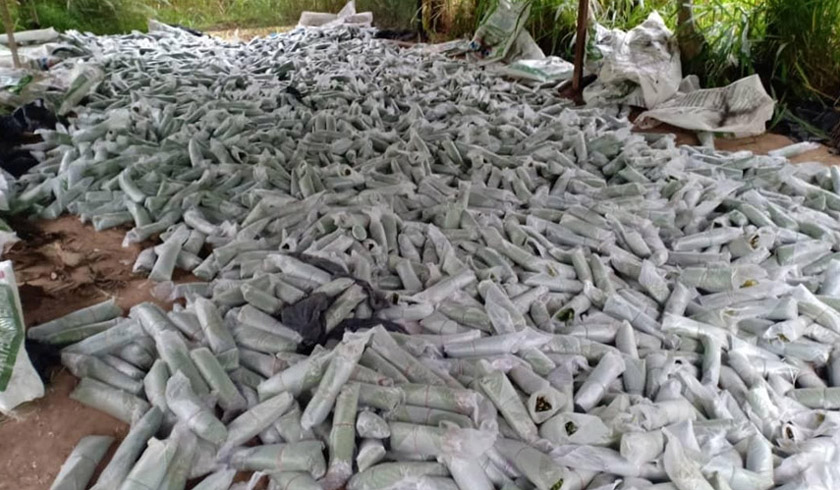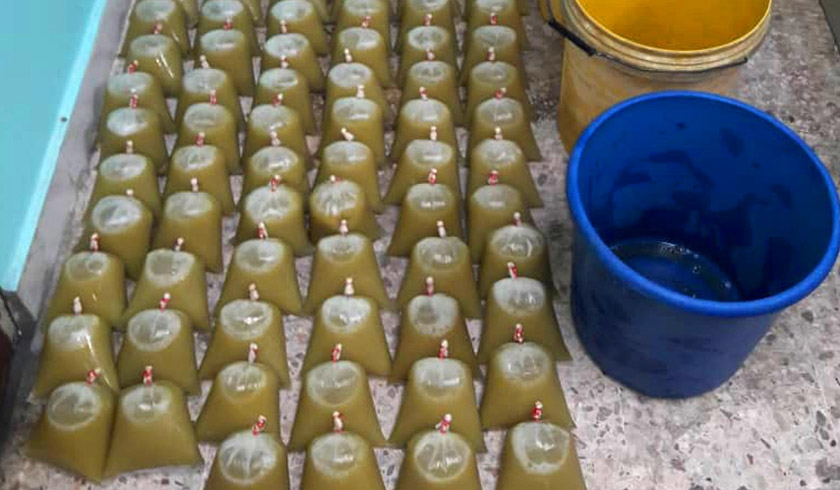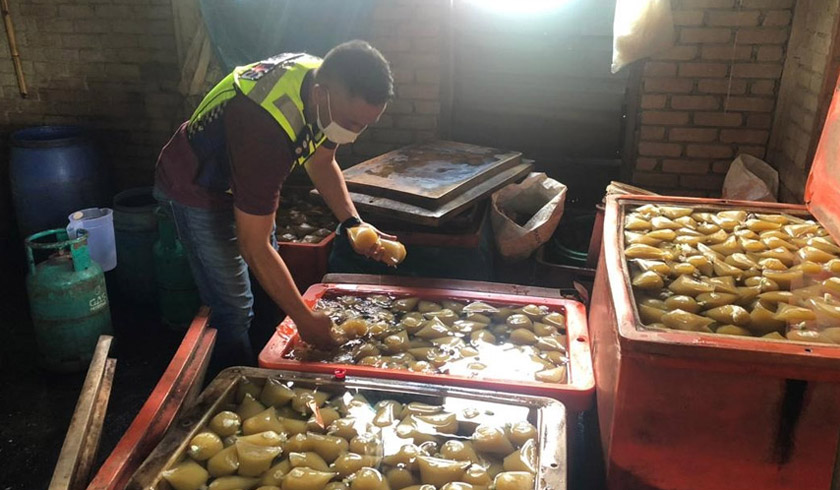NATIONAL
Malaysia's 'ketum' phenomenon and why it is so popular

Ketum leaves have been traditionally used to expel wind in the body and increase energy but too much of it can have stimulant, sedative and euphoria effects that can lead to addiction.. - foto BERNAMA
The recent shooting incident at the Malaysia-Thailand border has opened the public’s eyes once again to an inherent problem Malaysia has faced for decades – ketum.
Investigations on the incident that cost the life of a Malaysian General Operation Force (GOF) officer found that smugglers barter drugs from Thailand in exchange for ketum leaves from Malaysia.
Along the same border in October, security forces under Op Benteng once seized 2,250 kilogrammes of ketum leaves worth more than RM96,000.

Packs of ketum leaves found by authorities in Padang Besar to be smuggled to Thailand – Astro AWANI
Whereas earlier this year, a farmer from Kedah reportedly made a gross income of about RM60,000 per month just from selling ketum water.
Civilians aren’t the only ones involved in this lucrative business as the Bukit Aman Integrity and Compliance Standard (JIPS) has also detected the involvement of police personnel in the processing and selling of ketum water.
What is ketum?
Ketum or its scientific name, Mitragyna speciose, is a plant in the coffee family historically used in herbal medicine. It is indigenous to several countries such as Thailand, Indonesia, Malaysia, Myanmar and Papua New Guinea.

Ketum or its scientific name, Mitragyna speciose, is a plant in the coffee family historically used in herbal medicine. - foto BERNAMA
In Malaysia, ketum can be found in abundance in the northern states and east coast of the Peninsular, growing wild in the forest areas and surrounding villages. The Federal Land Development Authority (FELDA) areas specifically have become a hotspot where ketum trees are planted in abundance.
Ketum leaves have been traditionally used to expel wind in the body and increase energy.
The water from ketum leaves is also being used as a traditional medicine to treat certain illnesses such as back pain, fever, cough and worm disease as well as a cure for diabetes, high blood pressure, amongst others.
Misuse of ketum
Ketum leaf water has been misused by many as it contains psychoactive substances mitragynine which can have stimulant, sedative and euphoria effects that can lead to addiction.
The ketum leaves are typically boiled to produce a ketum drink which is usually packed in small packets to be sold to consumers.

Ketum drink is usually packed in small packets to be sold to consumers. – Astro AWANI
Consuming ketum leaves can have several effects:
- At low doses, ketum leaves can have a stimulating effect so that one feels more energetic.
- When consumed in excess, a person can feel euphoric, dizzy, drowsy and even nausea.
- If taken in doses exceeding 15gm, users will experience extreme sedative effects such as drowsiness, loss of consciousness, and even seizures.
- Continued intake can lead to addiction and several side effects such as lips and skin become blackened, bruises and burns especially on the cheeks, dry skin, frequent constipation and difficulty sleeping (insomnia).
- Chronic ketum consumers may also experience hypothyroidism which is a condition in which the body produces low levels of thyroxine hormone.
Ketum is generally considered as narcotic drugs and has already been banned for domestic consumption in Indonesia, Malaysia and Thailand.
That said, ketum is still widely exported both legally and illegally.

- After banning the plant for more than 70 years, Thailand has considered legalising ketum with its first major amendment to the Narcotic Act of 1979 in 2018 that legalised the production, import, export, possession, and use of cannabis and also ketum (also known as ‘krakom’ in Thailand) products for medical purposes.
- Indonesia still allow for its export in unprocessed form and has benefited from demand from the United States where as many as five million Americans use the drug based on data by the American Krakom Association (AKA).
- In Malaysia, mitragynine, the active ingredient in ketum leaves, is categorized as a psychotropic substance and is regulated under the Poisons Act 1952.
- Based on Section 30 of the act, the importation, export, manufacturing, sale and possession of such psychotropic substances are considered an offence and if convicted can be fined not exceeding RM10,000 or 4 years imprisonment or both.

Police raided a ketum laboratory in Alor Setar. - Astro AWANI
For several years, the government has tried to find a solution to the ketum problem which includes the banning of the plant entirely in the country citing concerns regarding its misuse that could serve as a gateway to further drug problems.
Beginning September 30th, police have also begun cutting down ketum trees planted in FELDA areas in Perlis and warned settlers that their land rights could be taken away from them if they continue to plant ketum trees.
Must-Watch Video
Stay updated with our news


